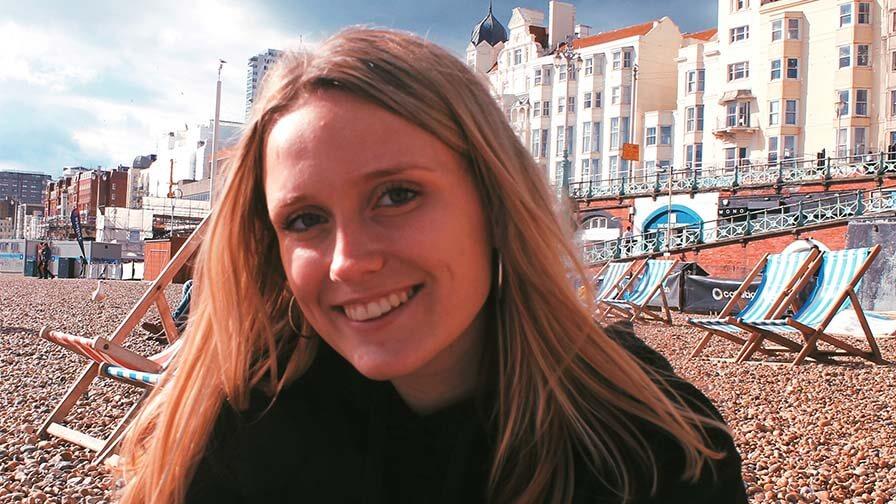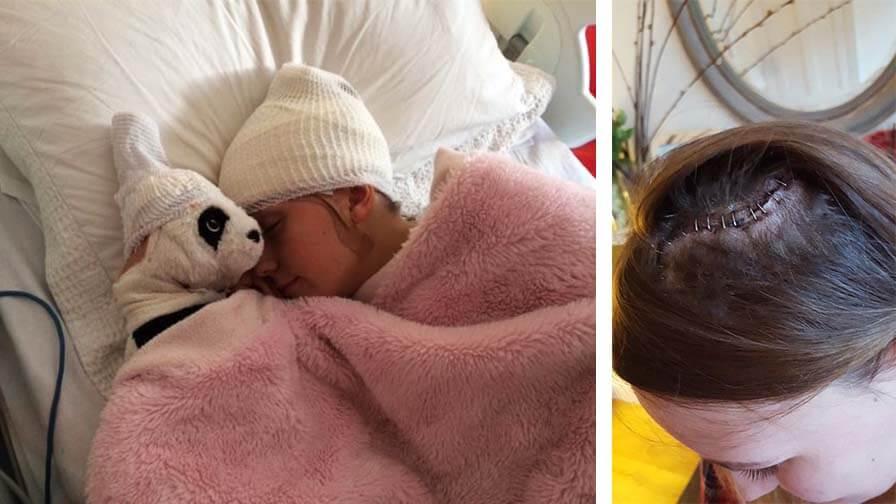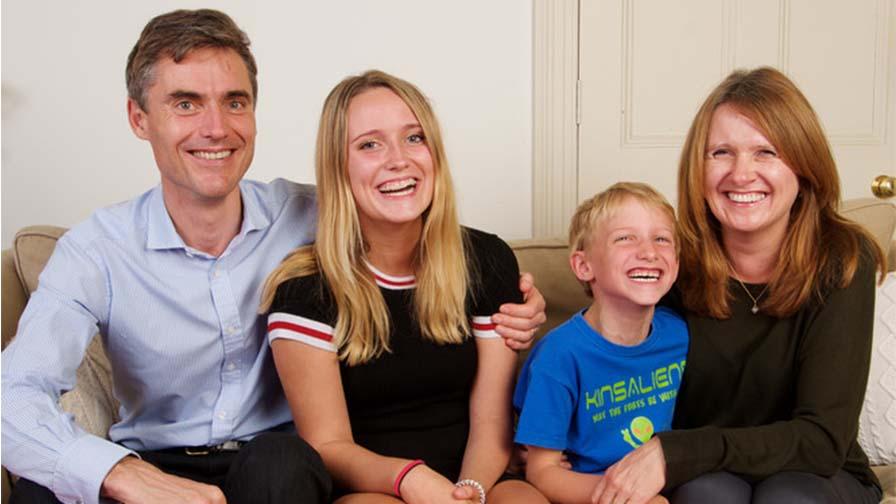Archived
Please note, this page may contain outdated information or subject matter.

Sophie today: fully independent and working as an usher whilst taking her A levels
It would be a huge understatement to say that my life has changed completely in the last 18 months. My name is Sophie Lennox and I had brain surgery in October 2015 to treat my epilepsy.
I was a totally normal child, someone who loved sport and was incredibly active. Aged 11, on a Thursday morning, I began my weekly run only to have what I now know was a seizure. I remember feeling as if I was transfixed, staring at a tree, with no capability to turn away from it. As the weeks went by, the seizures grew ever more frequent. The playground became a battleground and everyday ball games, which I once loved, filled me with sheer fear. As I moved to secondary school, epilepsy began to affect my learning and very soon I was bottom of the class, having seizures four times a day. For a child approaching her teenage years, I was baffled at the idea of living my life with this condition.
As the months went by, I began to rely heavily on medication and ended up on a dose recommended to obese males. Despite this, my seizures were only suppressed to three or four a day, a miracle when comparing this to the 10 to 20 I could have without medication, but still far from perfect. I fell down stairs, including on buses, in front of moving traffic and by the edge of train platforms.

After her epilepsy developed, Sophie endured many hospital stays, distressing tests and, eventually, brain surgery after which, thankfully, she became completely seizure free
Finding out the cause of my epilepsy took a tedious three years and after three brain scans, it was discovered that I had a cortical dysplasia, essentially a birthmark in my brain, which occasionally can manifest into epilepsy. Surgery was eventually mentioned to me in passing and, along with my family, I jumped at the idea – one which provided me with an undeniable amount of hope. As I got older, the things that I could and couldn’t do became clearer and surgery became my goal.
In 2015, I met three different surgeons and we decided on a trial of deep brain stimulation (DBS). It reduced my chance of paralysis because the team at Kings College London believed that paralysis was simply not an option for a 15 year old and, despite the fact that it involved two surgeries, one where I was awake, it was overwhelmingly worth it. DBS allowed my surgeon to pin point exactly where both my epilepsy and my motor functions were placed. It is a relatively new procedure, with only five people currently having undergone it.
Thanks to this, on 3 October 3 2015 I became epilepsy free and, a year later, medication free.
The treatment changed my life and this is all thanks to the funding of Action Medical Research and the incredible team I had supporting me at Kings. I am someone who is incredibly lucky to have had the support team I did; I went into surgery surrounded by an inspiring family, who were exceedingly strong, and some amazing friends.
18 months on and I am completely healthy and living the normal life I once had. The independence I now have is amazing and I feel so much safer in general. Simple things that I would’ve once worried about doing no longer cross my mind and I have a job as an usher, something I would never have dreamed of contemplating.
Both mentally and physically I feel so much more capable and I am currently studying politics, psychology and English at A-level. After year 13 I plan on taking a gap year and travelling to South America and Asia before taking politics and international relations at university. All of these plans are something I would’ve thought long and hard about before.

Family matters: Sophie with dad Andrew, mum Anne and little brother Rory
- National Epilepsy Awareness week is 20-26 May 2019
- You can read more about the techniques that researchers are refining, with funding from Action Medical Research and Great Ormond Street Hospital Children's Charity, here.
